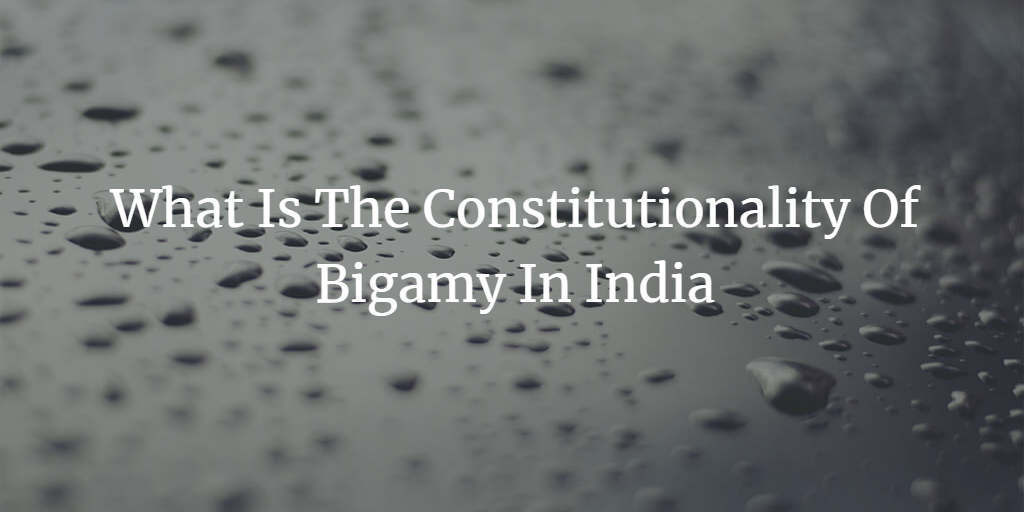What Is The Constitutionality Of Bigamy In India

Table of Contents
Introduction
Bigamy Under Indian Law
Constitutionality of Bigamy
Article 14: Right to Equality
Article 21: Right to Life and Personal Liberty
Article 25: Freedom of Religion
The Rights of Women and Bigamy
Conclusion
Introduction
The issue of bigamy, which involves marrying another person while already legally married to someone else, is a multifaceted concern in India due to the country's diverse religious and cultural practices. In this article, we delve into the constitutional aspects surrounding bigamy in India, examining its impact on personal liberty, religious freedom, and the rights of women.
Bigamy Under Indian Law
In India, bigamy is deemed a criminal offense under Section 494 of the Indian Penal Code (IPC) for individuals governed by the Hindu Marriage Act, the Special Marriage Act, the Parsi Marriage and Divorce Act, and the Christian Marriage Act. However, bigamy is permitted for Muslims under the Muslim Personal Law (Shariat) Application Act, which allows Muslim men to have up to four wives under specific conditions.
Constitutionality of Bigamy
The constitutionality of bigamy in India relates to certain fundamental rights guaranteed by the Indian Constitution:
Article 14: Right to Equality
Article 14 of the Indian Constitution guarantees equality before the law and provides for equal protection of the laws.The differential treatment of bigamy under Indian law raises questions about whether it infringes upon the right to equality. However, courts have maintained that laws governing marriage and personal matters may vary based on religious and cultural backgrounds, suggesting that such differentiation does not necessarily violate Article 14.
Article 21: Right to Life and Personal Liberty
Under Article 21 of the Indian Constitution, individuals are granted the right to life and personal liberty. Opponents argue that the criminalization of bigamy encroaches upon an individual's freedom to exercise personal autonomy in determining their marital status. Nonetheless, the Supreme Court of India has asserted that the right to personal liberty is not absolute and can be restricted to safeguard public interest, morality, and the rights of others.
Article 25: Freedom of Religion
Article 25 of the Indian Constitution guarantees the freedom of conscience and the right to freely profess, practice, and propagate one's religion .Although there are arguments claiming that prohibiting bigamy infringes upon religious freedom, courts have determined that bigamy is not an integral aspect of any religion and can be subject to state regulation in order to safeguard public interest and protect the rights of women.
The Rights of Women and Bigamy
The rights of women constitute a significant aspect in examining the constitutionality of bigamy. Bigamy has often been criticized for perpetuating gender inequality and subjugating women. By criminalizing bigamy, the Indian legal system seeks to protect women's rights and promote gender equality. However, the differential treatment of bigamy based on religious communities has sparked debates concerning the uniformity of personal laws and the necessity for a Uniform Civil Code to ensure equal rights for women across all religions.
Conclusion
The constitutionality of bigamy in India presents a complex issue involving personal liberty, religious freedom, and the rights of women. While bigamy is considered a criminal offense for most communities in India, the exception granted to Muslims under personal law underscores the need for further deliberation on uniformity in personal laws. The Indian legal system must strike a delicate balance, safeguarding fundamental rights, promoting gender equality, and accommodating diverse religious practices.


